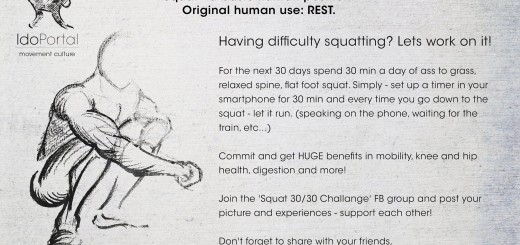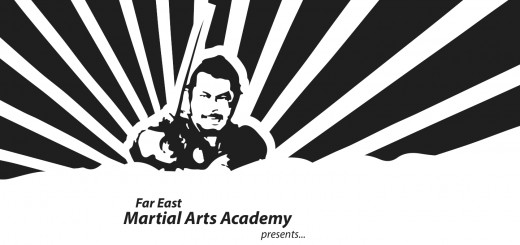If someone tells you that martial arts training is about Truth, transcending or destroying one’s Ego, and perceiving Ultimate Reality, you should at first be a little suspicious.
Not because those words can’t be true in a poetic sense, but because they’re overly simplified, cliché, and elusive. Could one really take that person seriously, without first investigating into the meaning behind philosophical assertions that sound like they came from a 1000-year-old (but deadly) long-white-bearded mild-mannered asian guy in flowing robes?
Natalia’s recent post brought up the importance of being rigorously honest, to offset the typical tendency to conform by playing it safe and being nice. It reminded me of an essay on critical thinking which I’ve reposted below in summary form.
1st Virtue: Curiosity
A burning itch to know is a driving force. It is almost an insatiable need to know, to understand. Exploration only leads to more questions with which one may pursue, creating an ever expanding playground to enjoy.
2nd Virtue: Relinquishment
“That which can be destroyed by the truth should be.” -P. C. Hodgell
Do not flinch from experiences that might destroy your beliefs. Submit yourself to ordeals and test yourself in fire to ensure that you do not hold on to false beliefs.
3nd Virtue: Lightness
Let the rivers of evidence carry you, with no direction of your own. Surrender to the truth as quickly as you can and embrace the new.
4th Virtue: Evenness
If we do not equally question our own ideas and ourselves then we are bound to lose our intellectual honesty. If the ideas you hold are truly more accurate than those of whom you question, you have nothing to fear, for they shall be supported by the evidence. If they are not, then you have freed yourself from the shackles of inaccuracy that would otherwise weigh you down.
5th Virtue: Argument
The part of yourself that distorts what you say to others also distorts your own thoughts. Only through the tossing back and forth of ideas, through pointing out flaws and attempting to refine our own views can we hope to ever understand anything.
6th Virtue: Empiricism
While some may claim there are many ways to ‘know’, it is only through empirical evidence that we can hope to truly understand anything. If we do not use this technique, we will forever be lost within a maelstrom of conflicting views with no way of knowing which one actually reflects reality.
7th Virtue: Simplicity
“Perfection is achieved not when there is nothing left to add, but when there is nothing left to take away.” - Antoine de Saint-Exupery
Simplicity is virtuous in belief, design, planning, and justification. If you can lighten your burden you must do so. There is no straw that lacks the power to break your back.
8th Virtue: Humility
To be humble is to take specific actions in anticipation of your own errors. To confess your faults and then do nothing about it is not humble; it is boasting of your modesty.
9th Virtue: Perfectionism
When you notice an error in yourself, this signals your readiness to seek advancement to the next level. If you tolerate the error rather than correcting it, you will not advance to the next level and you will not gain the skill to notice new errors. Do not be content with the answer that is almost right; seek one that is exactly right.
10th Virtue: Precision
The narrowest statements slice deepest, the cutting edge of the blade. Do not walk to the truth, but dance. On each and every step of that dance your foot comes down in exactly the right spot. Each piece of evidence shifts your beliefs by exactly the right amount, neither more nor less.
11th Virtue: Scholarship
Study many areas and absorb their power as your own. While it is impossible to learn everything about everything, the more one tries, the more one realizes the inter-connectivity of all things.
12th Virtue: The Void
Before these eleven virtues is a virtue which is nameless.
The legendary Japanese swordsman Miyamoto Musashi wrote, in The Book of Five Rings:
“The primary thing when you take a sword in your hands is your intention to cut the enemy, whatever the means. Whenever you parry, hit, spring, strike or touch the enemy’s cutting sword, you must cut the enemy in the same movement. It is essential to attain this. If you think only of hitting, springing, striking or touching the enemy, you will not be able actually to cut him. More than anything, you must be thinking of carrying your movement through to cutting him.”
Every step of your reasoning must cut through to the correct answer in the same movement. The void is the ability to see the whole as well as the uniquely functioning parts at the same moment. It is a state of ever changing zen.
Summary reposted from: karmajello.com
Full essay by Eliezer Yudkowsky here: yudkowsky.net/rational/virtues/
As an inspiring and masterfully written essay on how to think, the full version is still quite short. I encourage everyone to read it, martial artists and truth seekers alike.
But since we’re on the topic of critical thinking and purposeful conflict, let’s role-play some purposeful conflict and ask, “what are we missing here?” What would the legitimate opposition say against pure and rigorous honesty? Like, what does that even mean? Does it mean different things to different people? Does rationality have any flaws or omissions in its’ perception of truth that the “be nice” camp would want to point out?
Please post your replies below. ![]()





There’s the quote, “Honesty without Compassion is Cruelty”?
This is now my favourite quote! Who is it by?
Don’t know, but I like it as well!
I first heard it at one of Laurie’s evening meditation sessions. We were discussing Buddhism and the idea of using both “head” and “heart” to examine at a situation.
So what if we examine the opposite side as well?: e.g. “Compassion without Truthfulness is ( fill-in-the-blank )”.
From Carl Jung on the dual aspects of our minds (generally stereotyped as masculine/father and feminine/mother):
For purely psychological reasons I have, in other of my writings, tried to equate the masculine consciousness with the concept of Logos and the feminine with that of Eros. By logos I meant discrimination, judgement, insight, and by Eros I meant the capacity to relate [including empathy, connectedness, etc]. I regarded both concepts as intuitive ideas which cannot be defined accurately or exhaustively. From the scientific point of view this is regrettable, but from a practical one, it has value, since the two concepts mark out a field of experience which it is equally difficult to define. (Carl Jung, Collected Works of C.G. Jung, Volume 14: Mysterium Coniunctionis, paragraph 224).
I think “compassion” by definition is an honest approach – it implies the person seeing and accepting the real situation as is, as opposed to “sympathy”, or “feeling sorry for”.
The latter is very popular in Russian everyday culture: if you want to get a bureaucrat do something extra for you, in Russia you show up with a small badly dressed child. In Canada, anglophone culture, you emphasize the rules and the fairness of what you are asking for. I haven’t figured out the francophone side (the toughest bureaucracy I have come across) completely, but I think you have to put up a show and look very visually distressed, like clasp your hands, tear up, etc. They like to see a little drama here and thank God I have a little acting background
Cool reply, thank you. Reminds me of NYC!